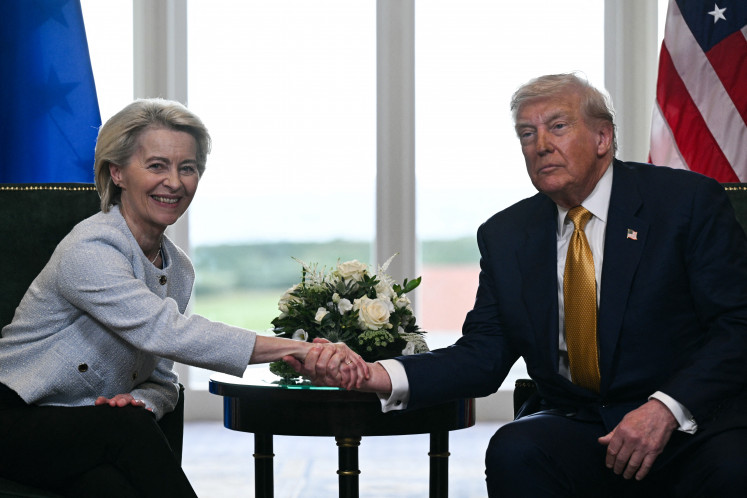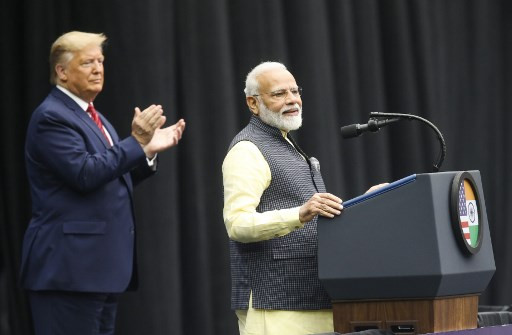Popular Reads
Top Results
Can't find what you're looking for?
View all search resultsPopular Reads
Top Results
Can't find what you're looking for?
View all search resultsGerman industrial output posts biggest decline in more than three years
Industrial production fell by 4.3 percent compared with the previous month, the federal statistics office said on Wednesday, the biggest fall since March 2022, just after Russia's invasion of Ukraine. Analysts polled by Reuters had predicted a 1.0 percent fall.
Change text size
Gift Premium Articles
to Anyone
G
erman industrial output fell much further than expected in August, pushed down by a sharp decrease in car production as frontloaded demand ahead of US tariffs dried up.
Industrial production fell by 4.3 percent compared with the previous month, the federal statistics office said on Wednesday, the biggest fall since March 2022, just after Russia's invasion of Ukraine. Analysts polled by Reuters had predicted a 1.0 percent fall.
The less volatile three-month on three-month comparison showed that production was 1.3 percent lower in June-August than in the previous three months.
Production in Germany's largest industrial branch, the automotive industry, fell by 18.5 percent on the previous month due to the combination of annual plant closures for holidays and production changeovers, the statistics office said.
Demand from Germany's top trading partner the United States has slowed following months of buying ahead in anticipation of tariffs imposed by President Donald Trump.
"Even if there might be some one-off factors at play, we fear that the sharp drop in industrial production also heavily reflects the end of US frontloading," said Carsten Brzeski, global head of macro at ING.
He warned that the "extremely disappointing" industrial data in August increased the risk of yet another quarter of contraction for the German economy, which shrank by 0.3 percent in the second quarter compared with the first three months of the year.
Ralph Solveen, senior economist at Commerzbank, said: "Today's figures are a further indication that the German economy hardly grew at all in the third quarter."
Germany's economy has struggled for years, hurt by a rise in energy costs following Russia's invasion of Ukraine.
The slump in aggregate output in August is a reminder that industry is still struggling, with the small gains in production made at the start of the year now completely erased and output 12 percent below its most recent peak in February 2023, said Franziska Palmas, senior Europe economist at Capital Economics.
Revisions, and any rebound in September, will provide a clearer view of the underlying trend, said Claus Vistesen, chief euro zone economist at Pantheon Macroeconomics.
Large declines in machinery and equipment, pharmaceuticals, and electrical and computer, electronic and optical products also weighed on the headline figure, figures from the statistics office showed.
Germany's final Purchasing Managers' Index (PMI) for manufacturing, compiled by S&P Global, slipped to 49.5 in September from August's 38-month high of 49.8 points.
The manufacturing output PMI points to a stronger underlying trend in production than Wednesday's official figures imply, said Vistesen, adding that he remains confident that output will either rebound sharply in September or that the August headline will be revised higher.
However, even if industrial production is higher again in September, it is unlikely to return to July levels, said Commerzbank's Solveen.
German industrial orders fell for a fourth straight month in August, dragged lower mainly by a weak car industry and a decline in overseas demand, data showed on Tuesday.
Solveen noted that both industrial output and industrial orders data show that there is no sign of an upturn in German industry as yet.
"In fact, the trend in production is still pointing downwards," Solveen said.










